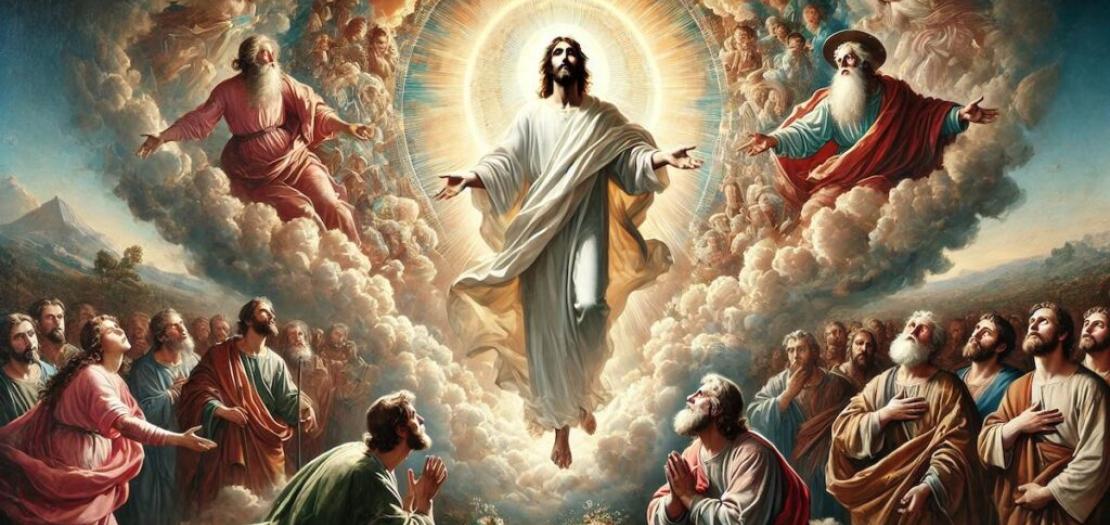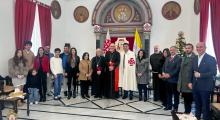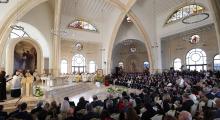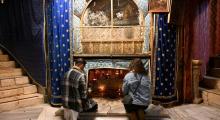Issued by the Catholic Center for Studies and Media - Jordan. Editor-in-chief Fr. Rif'at Bader - موقع أبونا abouna.org

Following is the text of meditation by Cardinal Pierbattista Pizzaballa, Latin Patriarch of Jerusalem, marking the first Sunday of Advent C dated December 1, 2024:
The time before the return of the Lord is described as a time of great upheaval: The evangelist Luke describes them to us in today's passage (Luke 21:25-28, 34-36) as natural phenomena affecting the moon, the sun, the stars and the sea, (Luke 21:25) to say that even the most stable things will be shaken and upset.
There are times in life when even the foundations of existence lose their ability to offer certainty, and the reference points that seemed absolutely certain are lost. The most natural reaction in the face of these upheavals is fear: “distress among nations”, it says in v. 25, while Luke speaks a little later of a big fear “People will faint from fear”. (Luke 21:26)
In short, the Gospel says that fear paralyzes, that fear kills. It does not say that people will perish because of these heavenly upheavals, but because of the fear that these upheavals will cause. The feeling of fear blocks life, does not allow one to look beyond and see what can arise even in the various vicissitudes of life.
But there is also the possibility of dealing with these upheavals in a different way.
One gateway through which we can enter in this other way is the image of the cloud: today’s Bible passage says that the Son of Man will come at the same time as these upheavals, and on a cloud (“They will see the Son of Man coming in a cloud with power and great glory”. (Luke 21:27)
The cloud is a biblical symbol that appears again and again. It points to everything that does not belong to earth, but to heaven and therefore to God’s world. Even the long journey of liberation of biblical Israel in the desert was accompanied and guided precisely by a cloud that became light at night and never failed along the way. (Exodus 13:21-22) The presence of the cloud therefore indicates that God accompanies man’s journey. And that the Lord will return on a cloud, just as a cloud accompanies the journey of life every day.
So, the point is to recognize that in the days of our lives there is a cloud on which the Lord comes, and he comes even when these days become dark and stormy.
But who can see, who can recognize the coming Lord?
The Gospel tells us that seeing is not so much a matter of the eye as of the heart. Can see those whose hearts are not weighed down and distracted. Can see those whose hearts are not turned inward (“Be on guard so that your hearts are not weighed down with dissipation and drunkenness and the worries of this life, and that day catch you unexpectedly”. (Luke 21:34)
For those who train their hearts to rise above themselves, the Lord will not come suddenly, he will not be a surprise. He will be like a guest whom they expect all their lives, day after day.
Where some see only misfortune, where they are paralyzed by fear, others can see the possibility that the Lord will break through and come.
Those who are not blocked by fear, who are not weighed down by the things of life, stand up (“When these things begin to take place, stand up and raise your heads, because your redemption is drawing near”. (Luke 21:28)
We stand up when we prepare for a meeting, when someone enters our home, when we set out on our journey. And not only that. We also stand up when we pray, when we want to see further.
In fact, Jesus says that this attitude of watchfulness and waiting is called prayer, and it is precisely the attitude of those who do not live their lives sitting, tired and resigned, nor of those who try to flee in the face of upheaval (“Be alert at all times, praying that you may have the strength to escape all these things that will take place, and to stand before the Son of Man”. (Luke 21:36)
To pray is to stand before a Presence (Luke 21:36) that is as subtle as a cloud, as strong as a liberating experience (Lk 21:28), a presence that is always there for all, but requires open and uplifted hearts and eyes that are able to see the signs (Luke 21:25) of His passing everywhere.
+ Pierbattista







